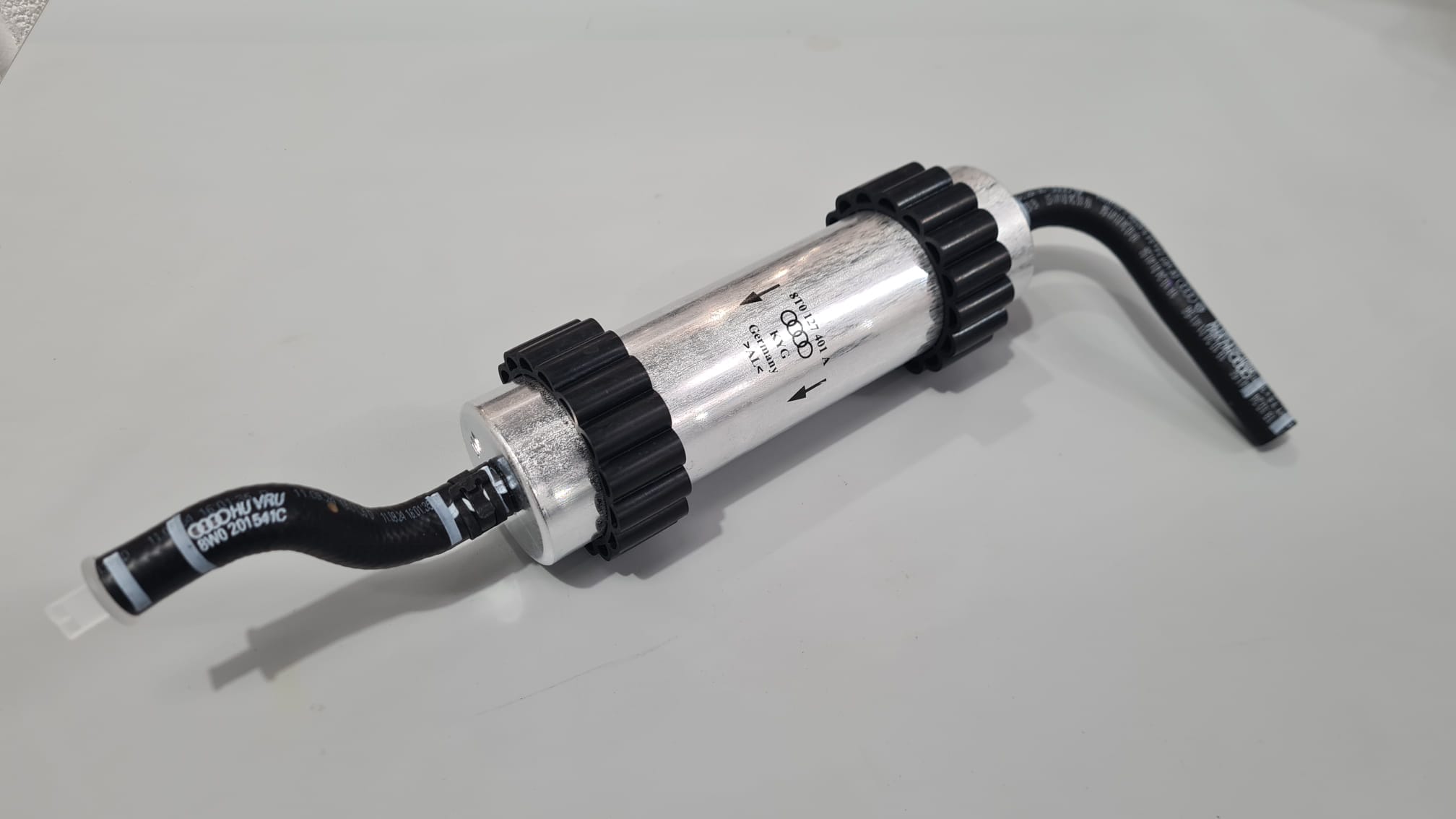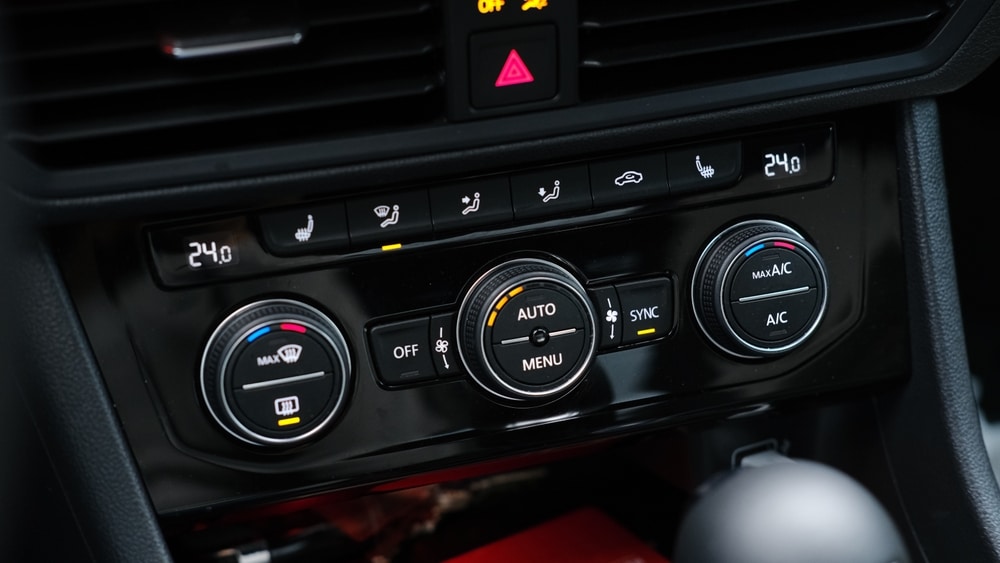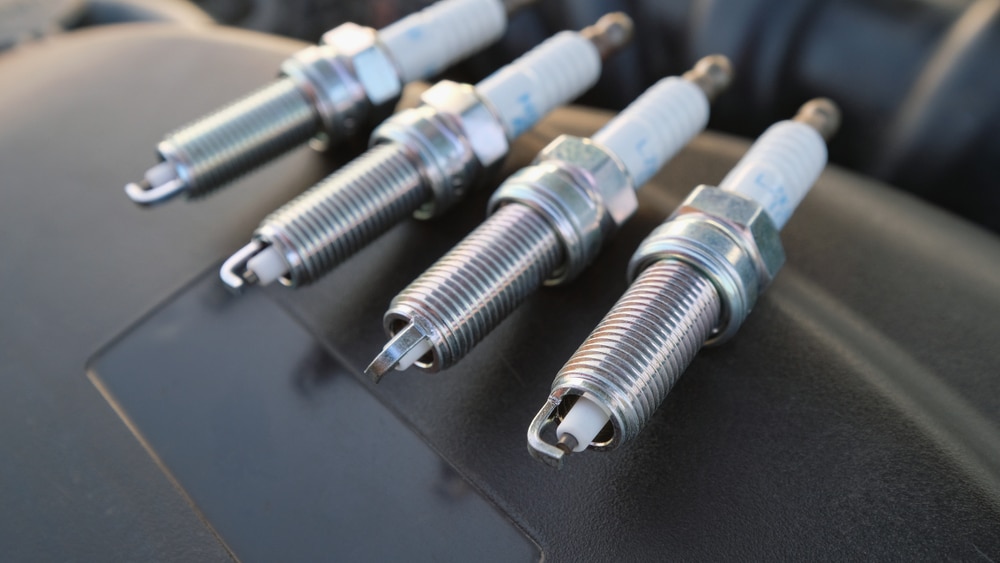Diesel Fuel Filter
Can such a small part really make the difference between smooth driving and expensive breakdowns?
Your diesel fuel filter works to shield critical components, including the injectors and high-pressure pump, from harmful particles and moisture in the diesel. Without it, contamination can quickly cause performance issues and lead to major repair bills.
Which is the last thing you want to happen to your vehicle.
In this guide, you’ll discover:
- Where the diesel fuel filter is located.
- How it functions.
- The common faults that arise when servicing is skipped.
- Why timely diesel fuel filter replacement is so important.
When did you last replace your diesel fuel filter? Book your service today with RS Autotechnik, Dursley on 01453 796345 and keep your engine protected.
Where your diesel fuel filter sits
The diesel fuel filter (shown as part 4 in the diagram) is fitted on the low-pressure side of the fuel system, positioned between the tank and the high-pressure pump.
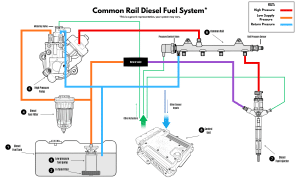
Most modern cars locate it in the engine bay, so it’s more accessible for servicing.
A coarse strainer inside the diesel fuel tank (part 2) is also common on modern vehicles, helping to catch larger debris before it reaches the main diesel fuel filter.
For the bigger picture on how each component works together, see our Diesel Fuel System Guide.
Diesel fuel filter functions explained
Most modern diesel vehicles use a main diesel fuel filter. This filter protects your diesel fuel system in two key ways:
- Separating water: Diesel naturally contains small amounts of water. The diesel fuel filter removes this moisture before it circulates through the system, protecting pumps and injectors from corrosion and preventing expensive damage.
- Capturing particles: Your diesel fuel filter is designed to trap fine debris and other contaminants that are in the diesel before they can reach the fuel injectors or high-pressure pump. If these particles were to get through, they could cause wear, blockages, or even permanent damage to key components, leading to costly repairs.
Regularly replacing your diesel fuel filter during your car’s servicing is an important part of preventative maintenance. Without it, you risk severe damage and the large repair bills that come with it.
Book your diesel service with RS Autotechnik, Dursley, today on 01453 796345.
Diesel fuel filter types and construction
Many modern diesel fuel systems are usually equipped with a fine diesel fuel filter (part 4 in the diagram), but construction differs depending on the setup. The main options are:
- Cartridge modules: Common across modern vehicles. A plastic or aluminium housing holds a pleated, multi-layer filter element that captures particles and separates water. Housings may also include additional components such as sensors, valves, or a hand primer. At servicing, only the inner element is replaced.
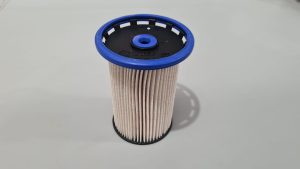
- Sealed filter units: These sealed filters contain both the housing and the media, which are changed as one piece. They’re often found in older or heavy-duty applications and can include built-in drain bowls or water separation.
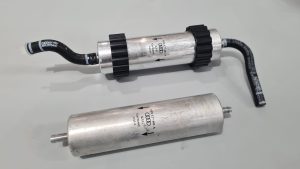
It’s worth noting that many diesel fuel systems use an in-tank strainer to capture large particles before they enter the fuel system via the low-pressure fuel pump.
Wondering when your diesel fuel filter was last replaced? Call our team at RS Autotechnik, Dursley; we’d be happy to help.
Common diesel fuel filter faults
Problems with a diesel fuel filter can cause the following issues:
- Blocked strainer: A clogged strainer forces the lift pump to work harder, often resulting in noise and inconsistent fuel delivery.
- Restricted filter: As dirt accumulates, diesel flow to the high-pressure pump drops. This can lead to sluggish performance, long cranking, or a no-start.
- Water ingress: If water isn’t separated, it can corrode the injectors and damage the high-pressure pump.
- Air entry: Poor seals or incorrect fitting allow air into the low-pressure line, which can cause hesitation, stalling, or prolonged starting times.
- Incorrect installation: A wrongly chosen or poorly fitted diesel fuel filter can result in air ingress, fuel leaks or unfiltered diesel bypassing the system.
Want peace of mind? Speak to a professional for expert advice.
When to replace your diesel fuel filter
There’s no universal interval for diesel fuel filter replacement. Each manufacturer sets the correct timing, so it’s important to follow the servicing schedule (you can often find this in your car’s handbook).
Key reminders:
- Correct diesel fuel filter choice: Fit only the diesel filter recommended for your vehicle. Cheap substitutes may leak fuel, restrict flow, or separate water poorly.
- Declining effectiveness: ISO testing shows that water separation performance falls from over 95% in a new filter to around 70% by the end of its life.
- Priming process: After fitting a new diesel fuel filter, the diesel system must be primed using the pumps or a hand primer. Skipping this step can trap air, causing hard starting or damage to the high-pressure pump.
- Water checks: Diesel fuel filters with drains or sensors should always be inspected at service and drained if needed.
Timely replacement is one of the best ways to prevent breakdowns. Call RS Autotechnik, Dursley, on 01453 796345 to book your diesel fuel filter service today.
Protecting your diesel system
Having your vehicle’s diesel fuel filter replaced at the correct interval is an essential part of preventative maintenance.
By following the manufacturer’s servicing schedule, you reduce the risk of fuel system problems while helping your engine continue to perform at its best. Looking after the diesel fuel filter now also helps avoid more serious and costly faults further down the line.
And when it comes to keeping your vehicle protected, the garage you choose makes all the difference. That’s why drivers across Dursley, Bristol, Gloucester, and the surrounding areas rely on RS Autotechnik for their diesel servicing.
Why drivers choose RS Autotechnik
Our customers rely on us because we offer:
- Diesel specialists with years of experience.
- A 12-month parts and labour guarantee.
- Courtesy cars are available for your convenience.
Our local garage is backed by a {{average-rating}}⭐ Google rating from {{review-count}} customers across Dursley, Bristol, Gloucester and the nearby areas.
When did you last change your diesel fuel filter? Call RS Autotechnik on 01453 796345 today and book your service.
Common questions about diesel fuel filters
- What does my diesel fuel filter do?
Your car’s diesel fuel filter helps remove particles and water from the diesel fuel before they reach components such as the injectors and high-pressure pump. Contaminants can cause corrosion, wear, or blockages without this crucial safeguard, leading to breakdowns or costly repairs. - Where is the diesel fuel filter?
The diesel fuel filter is generally positioned on the low-pressure side of the diesel system, between the fuel tank and the high-pressure pump. On most modern cars, it’s often located in the engine bay. A coarse in-tank strainer also catches larger debris before it reaches the main filter. - How often should a diesel fuel filter be replaced?
Intervals vary by manufacturer. The best approach is to follow the guidance in your service schedule to ensure timely replacement. - What happens if my diesel fuel filter is blocked?
A blocked diesel fuel filter can have the following symptoms:- Reduced engine performance
- Hesitation
- Stalling
- Difficulty starting
Complete no-start. As these symptoms can be caused by other faults, an expert check is the safest option.
- Can a blocked diesel fuel filter damage the pump?
Yes. A clogged diesel fuel filter restricts flow, which forces the pump to work harder. Over time, this added stress can result in early wear or pump failure – a costly repair compared to a filter change.
